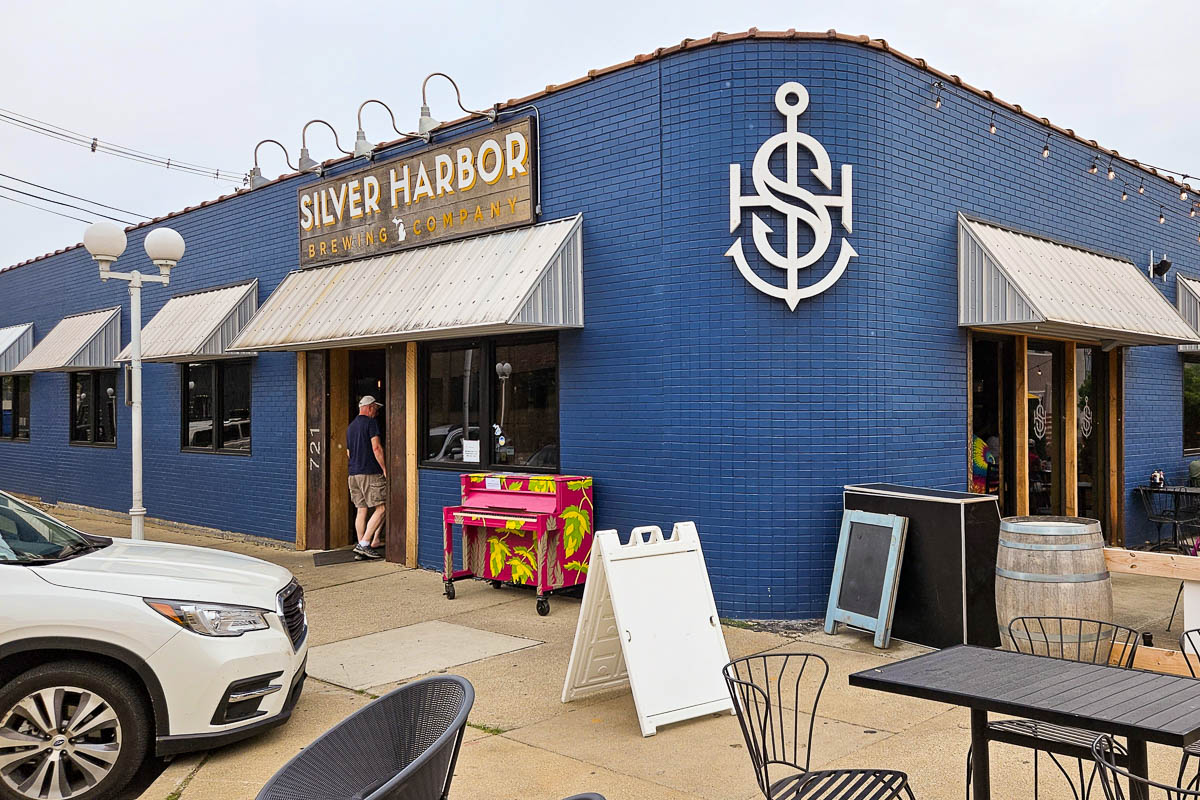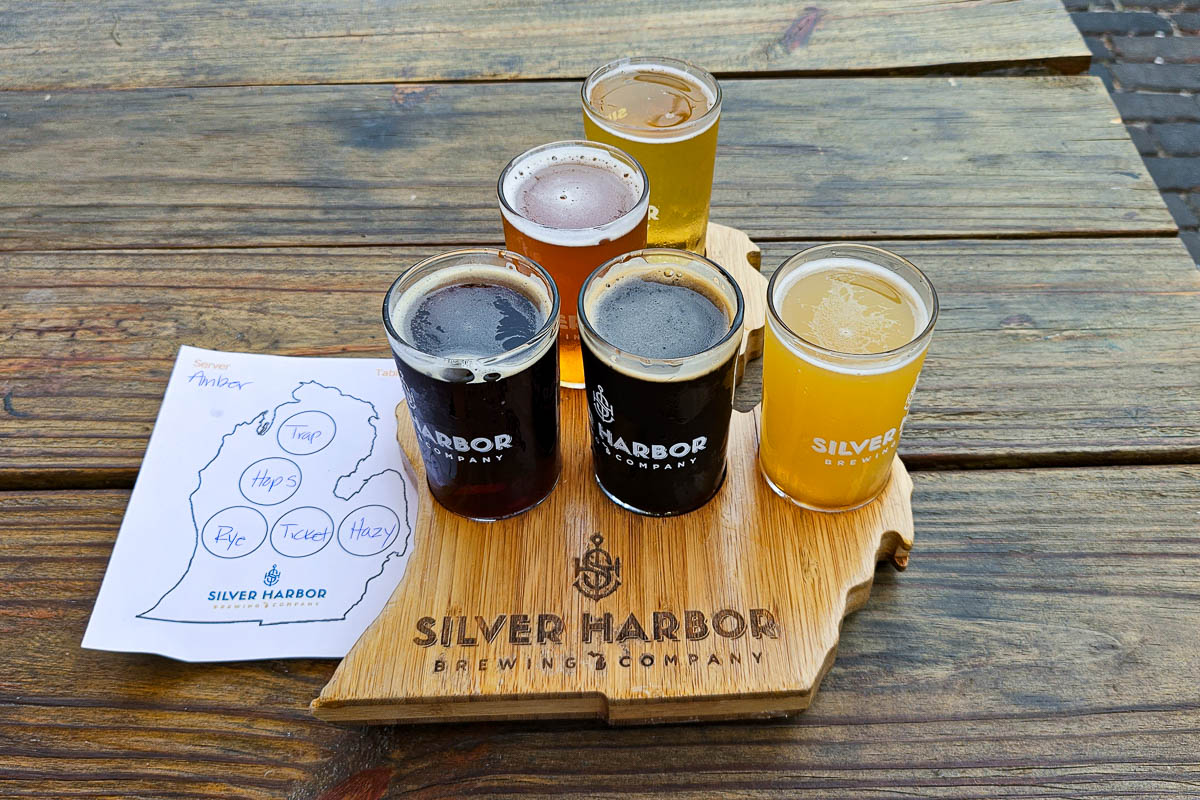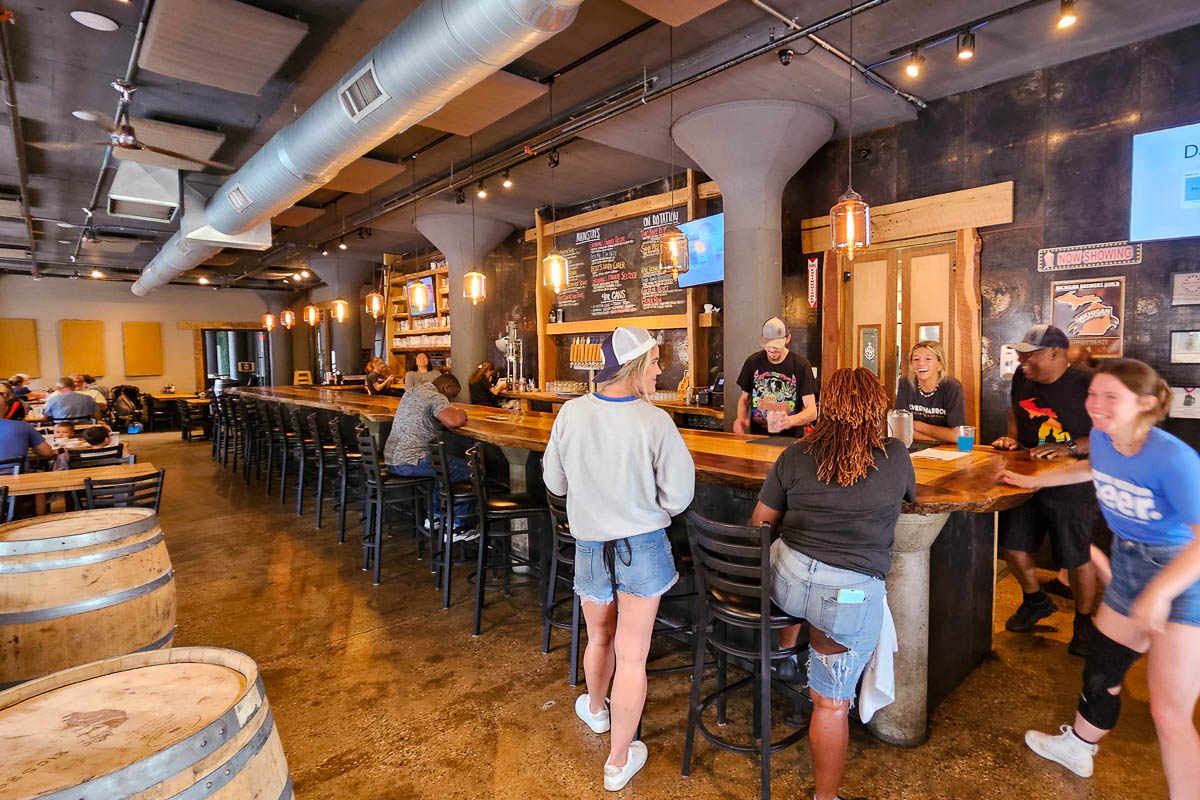Welcome to stop #83 on the Brews and Choos project.
Brewery: Silver Harbor Brewing, 721 Pleasant St., St Joseph, Mich.
Train line: Amtrak, St Joseph
Time from Chicago: 103 minutes
Distance from station: 500 m

Stopping by the best brewery in St Joseph, Mich., does not mean I'm going to expand the Brews and Choos Project to include every brewery, distillery, cidery, and winery accessible by train from Chicago, no matter how far away, but it's a tempting prospect. No, there's still a 2-hour time limit on the trip. But I am spending more time in Southwest Michigan lately, and probably taking the train up there occasionally, so why not try some beer?
My friends from the area told me that Silver Harbor Brewing was the best brewery in the city, so when I visited them yesterday, we stopped in. I had the brisket flatbread (excellent) and a flight of 5x 120 mL pours.

I started with the Tourist Trap American lager (5.1%, 18 IBU), a great example of the style with some maltiness and a crisp finish. The Hops, Sweat, and Tears AIPA (6.8%, 66 IBU) gave me a well-balanced bitterness, with some pine and a hint of citrus. The Pick Me, I'm Hazy IPA (7%, 55 IBU) burst out with fruit and Citra hops and finished perfectly. The Rye-Donkulus Baltic Porter (9%, 29 IBU) finished out the tasting with my meal; my first note is "oh that's tasty" and "long sweet finish, great complexity." I saved the Golden Ticket Imperial Chocolate Stout (9.5%, 62 IBU) for dessert, and got rewarded with cascading complex dark chocolate, molasses, and vanilla. Then we took the 7-year-old to play Connect-Four (she almost won) and walked around for half an hour so I could metabolize the stout.

And of course, every server passing our patio table stopped to pat Cassie.
Important note, though: while you only have to walk 500 meters from the St Joseph Amtrak station to the brewery, through a cute, summer-resort downtown, Amtrak clearly believes people only take day trips from St Joseph to Chicago. The Pere Marquette departs Chicago daily at 6:30 pm Central, then runs non-stop to St Joseph by 9:13 pm Eastern. The return trip leaves St Joseph at 8:09 am Eastern and arrives in Chicago at 9:08 am Central. Great, it's closer to Chicago than Kenosha or Elburn, but Christ on a cracker, Amtrak, could you run a second train favoring Chicago-to-Michigan day trips?
Beer garden? Yes
Dogs OK? Outside only
Televisions? Yes, avoidable
Serves food? Full menu
Would hang out with a book? Yes
Would hang out with friends? Yes
Would go back? Yes